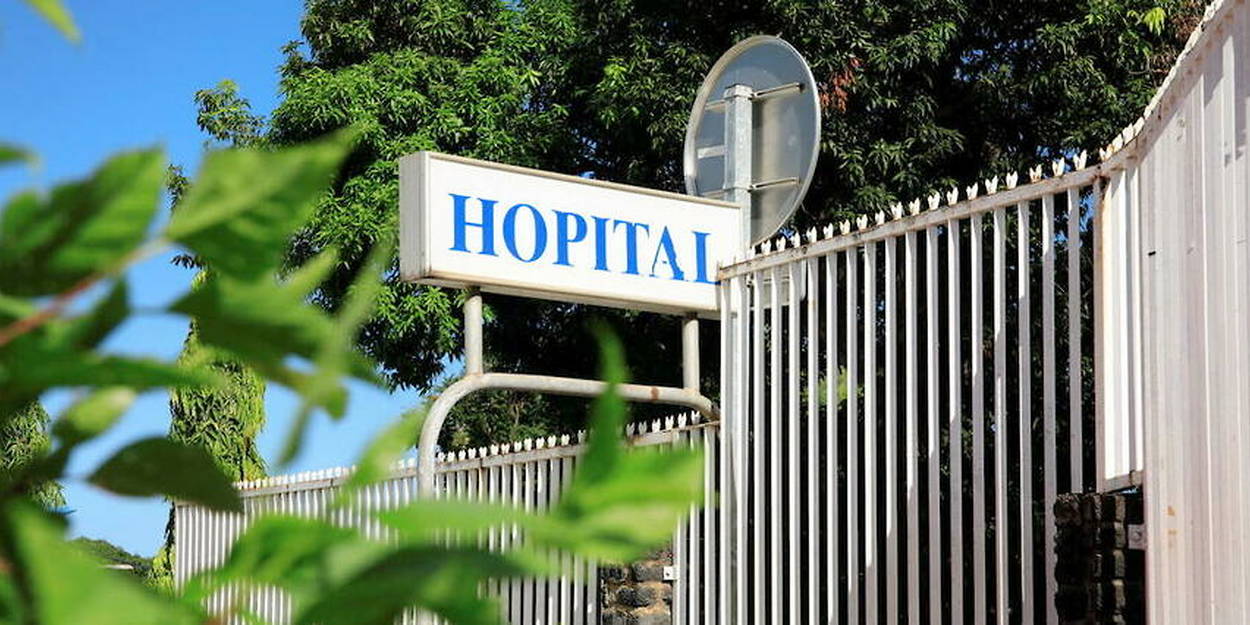ifoppose the reception of a patient “with obvious and proven potential danger”. Since the beginning of June, this has been the singular approach undertaken by the staff of a psychiatric service at the hospital in Brive-la-Gaillarde, in Corrèze. Indeed, the staff members fear the possible transfer, in their establishment, of a patient with a heavy criminal past.
In 1997, Mr. B. gutted a passerby in a street in Brive-la-Gaillarde. Condemned, in 2000, to thirty years of criminal imprisonment, he kills, in 2004, his fellow prisoner of the central house of Saint-Maur (Indre), and eats his brains with a spoon. Nicknamed “the cannibal”, the man of “an imposing size” and “very developed muscular strength”, as specified by the members of the hospital service in a four-page letter addressed, at the beginning of the month, to their management, has since been serving his sentence in hospital.
Until then cared for in several units for difficult patients (UMD) – including the last at the Pays d’Eygurande hospital center, in Corrèze – he could be transferred, in July, to a service deemed more flexible: intensive care. of psychiatry (SSIP) at the Henri-Laborit hospital center in Brive-la-Gaillarde. A prospect that “raises many questions and a certain concern among almost all the staff of the service”, as indicated in the letter that Point was able to consult.
READ ALSOFrench psychiatry in a state of absolute emergency
“We don’t do easy jobs…”
Among the arguments of the staff members who could welcome him, the “human and material resources” available to the establishment. “The paramedical team is made up of three nurses during the day and a nurse and a nurse’s aide at night”, and “it regularly happens that in the event of absence, personnel who are not trained and/or accustomed to working in psychiatry are brought in to replace them,” they argue. Adding that the service in which they work is “small” and leads patients “to spend their days in cramped spaces”. An element, they believe, “major trigger of frustration and destabilization increasing the risk of acting out”.
“This service is unsuitable for this type of patient”, thus argues, with the Point, a CGT representative from the hospital. It underlines the proximity of the establishment to the city center. “If he wants to run away, it’s less than ten minutes away. Our fence is three meters long, it’s a joke…”, while insisting on the “legitimate apprehension” of the staff as to their welcome. “Even in the seclusion room, you have to go in there… And if he wants to fight it out? he projects. “You know, we don’t do easy jobs…”
READ ALSOHealth system: when is the shock treatment?
“If the medical committee of the unit for difficult patients in which the patient is [systématiquement renforcée de plusieurs psychiatres externes à l’établissement, NDLR] expressed a positive opinion on his transfer, we can assume his condition as relatively stabilized, ”tempers Doctor Jean-François Paul, head of the psychiatry-justice interface of the SPH (Union of Hospital Psychiatrists). He specifies that the reception of patients in the unit for difficult patients (UMD) is intended to be “temporary”. “It can, in rare cases, last several years. But it is common for patients, if they have evolved in clinical terms, to be referred to general psychiatric units. »
A “symptomatic” case
This case, “beyond its local dimension”, is nonetheless “symptomatic”, explains the doctor. From a “febrility” first: “If the practitioners of the public have the duty to take charge of all the patients and not to summarize them with their past acts, the nature of the crime is not without effect. Cannibalism, transgression of a social taboo, hurts our values and can provoke fear and rejection…”
From a “more general malaise” also, that of the “public hospital” and of psychiatry in particular. “The budgets allocated are insufficient and some establishments are having to reduce their staff or are struggling to recruit staff – who are increasingly reluctant to work there –, causing them to take on their tasks with difficulty. This poses a problem when patients requiring special follow-up are received there…”, recalls Jean-François Paul.
READ ALSOThe drama of Reims highlights the crisis of psychiatry
“We submit by this letter the question of responsibility in the event that an extremely violent physical attack, or even a third murder, occurs within our service on one of our patients, one of our colleagues or ourselves “, writes, unequivocally, the staff in its missive. The ARS, the prefect of Corrèze, Étienne Desplanques – who will have the final decision on this transfer –, and the deputy for the second constituency of Corrèze, Frédérique Meunier, have been added to the recipients.
An “alert” that the elected official “took very seriously” and “raised”, on June 9, to the Minister of Solidarity and Health, François Braun. “I told him that this transfer was irresponsible,” she confides to the Point. “It is my responsibility to protect our fellow citizens and I refuse that we say that we will not have seen anything coming or stick to a minute of silence if a tragedy occurs! she says, nervously.
READ ALSOKervasdoué – The massacre of psychiatry continues
At the prefecture of Corrèze, we try to appease the spirits. Without promising anything. “The prefect will carefully examine the situation of Mr B. […] taking into account the medical requirements and the security conditions, in connection with the judicial authority”, it is stated, soberly. A commission will be held this Friday, June 23, to decide whether or not to transfer the patient.
